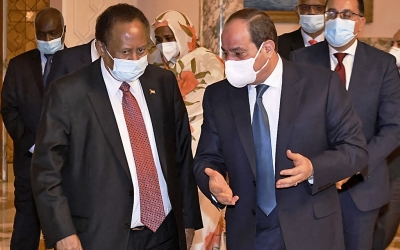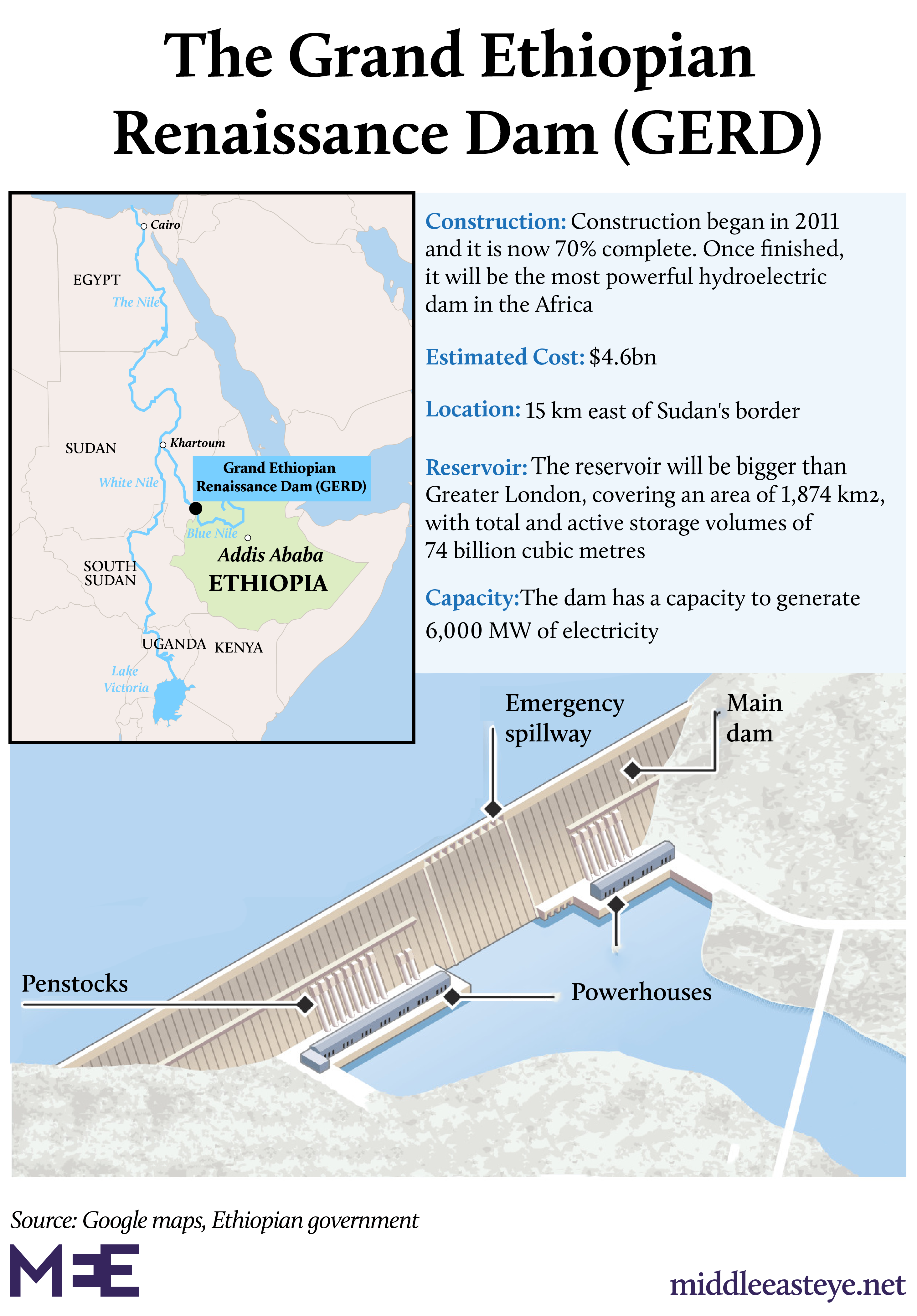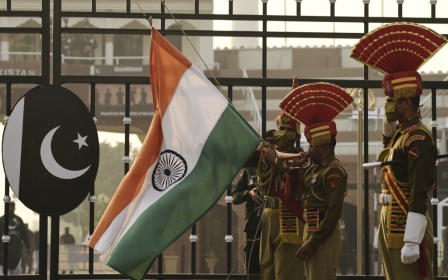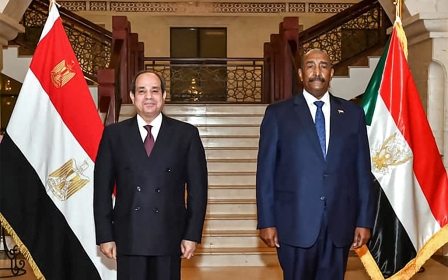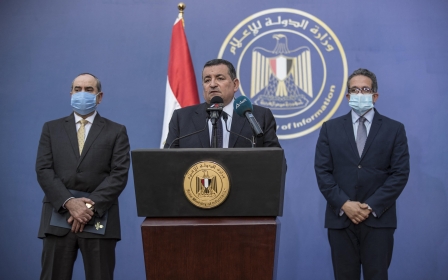Sudan accepts UAE offer to mediate border and dam disputes with Ethiopia
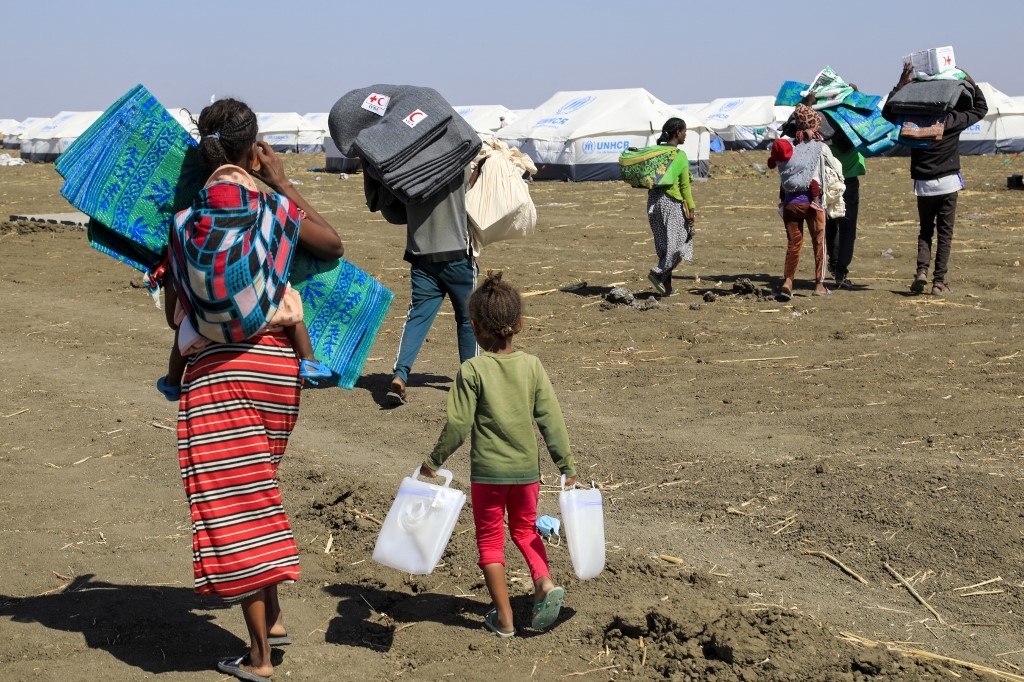
Sudan has accepted an offer by the United Arab Emirates (UAE) to mediate with Ethiopia over a contested border region and Addis Ababa's construction of a huge dam on the Nile River.
Government spokesman Hamza Baloul told the AFP news agency on Tuesday that Sudan's transitional cabinet backed an initiative by the UAE to mediate talks after it had been studied at the ministry level.
"The cabinet expressed its willingness to deal with the (UAE) initiative to serve Sudan's higher interests," Baloul said.
Tensions have been running high between Khartoum and Addis Ababa over the Al-Fashqa region where Ethiopian farmers have cultivated fertile land claimed by Sudan.
The region borders Ethiopia's troubled Tigray region, where fighting erupted in November, sending thousands of mainly Tigrayan refugees into eastern Sudan.
New MEE newsletter: Jerusalem Dispatch
Sign up to get the latest insights and analysis on Israel-Palestine, alongside Turkey Unpacked and other MEE newsletters
In recent months, Sudan has sent troops to the area, a move deplored by Ethiopia as an "invasion". Khartoum, however, has denied any claims of occupying Ethiopian territory.
A string of deadly clashes has followed, with both sides trading accusations of violence and territorial violations.
On Tuesday, Ethiopian Prime Minister Abiy Ahmed appeared to quell fears of a broader conflict and said his country did not want to escalate the situation.
"Sudan is a brotherly country. We don't want to fight with Sudan," Abiy said during a parliamentary speech.
"Sudan is not in a position to fight against any neighbours, it has many problems. Ethiopia has also many problems, we are not ready to go to battle so we don’t need war. It is better to settle it in a peaceful manner."
The border tensions have also come at a delicate time between the two countries, which along with Egypt have been locked in inconclusive talks over the construction of the Grand Ethiopian Renaissance Dam (GERD).
Ethiopian officials hope the dam, now more than three-quarters complete, will reach full power-generating capacity in 2023 and help bring millions of its people out of poverty.
Egypt, on the other hand, which relies on the Nile for 97 percent of its freshwater needs, sees the dam as an existential threat, and Sudan fears its own dams would be harmed if no agreement is reached.
Earlier this month, Khartoum called for mediation by a quartet of the African Union, European Union, United Nations and the United States, a proposal welcomed by Cairo but rejected by Addis Ababa.
Middle East Eye delivers independent and unrivalled coverage and analysis of the Middle East, North Africa and beyond. To learn more about republishing this content and the associated fees, please fill out this form. More about MEE can be found here.


